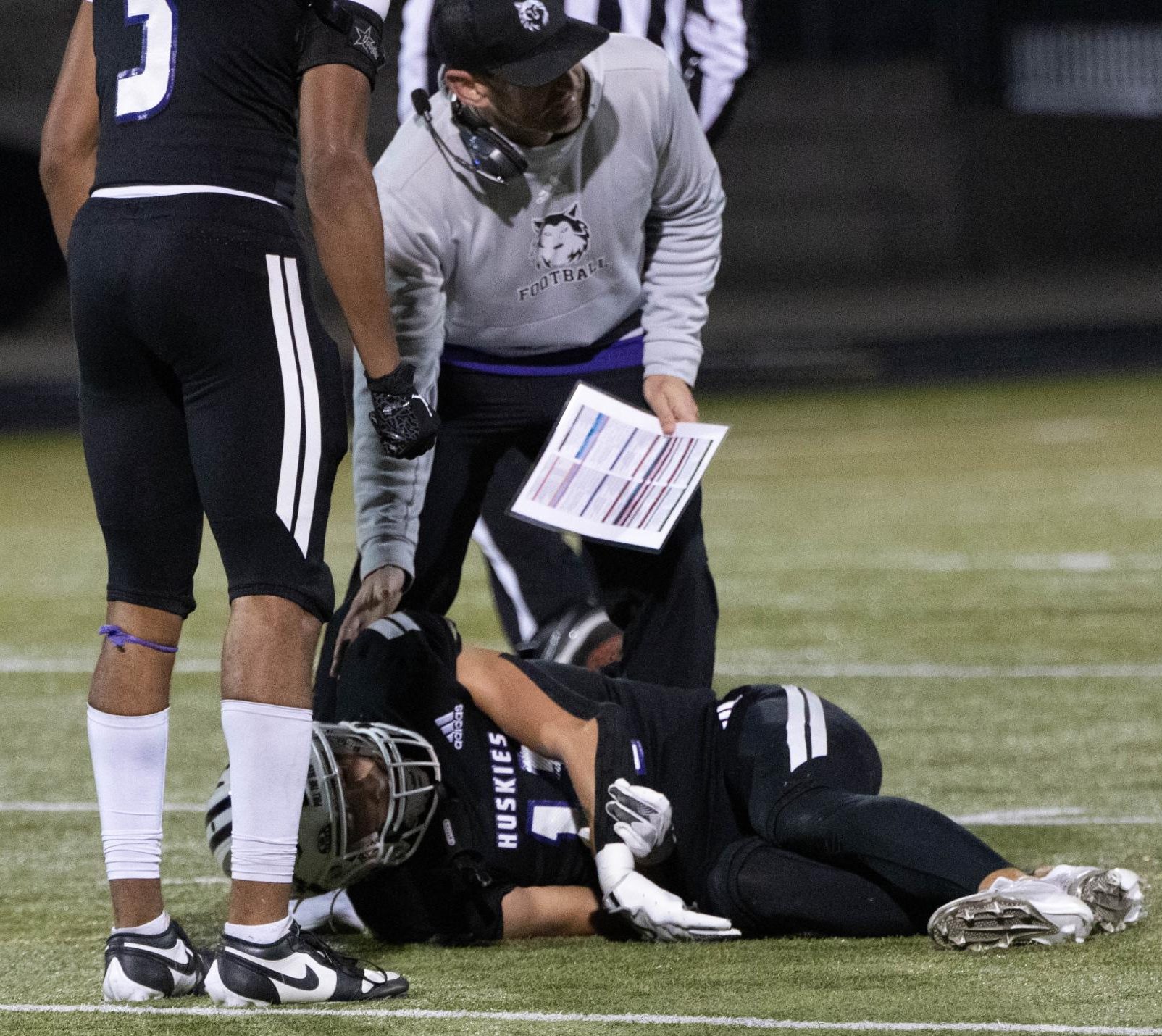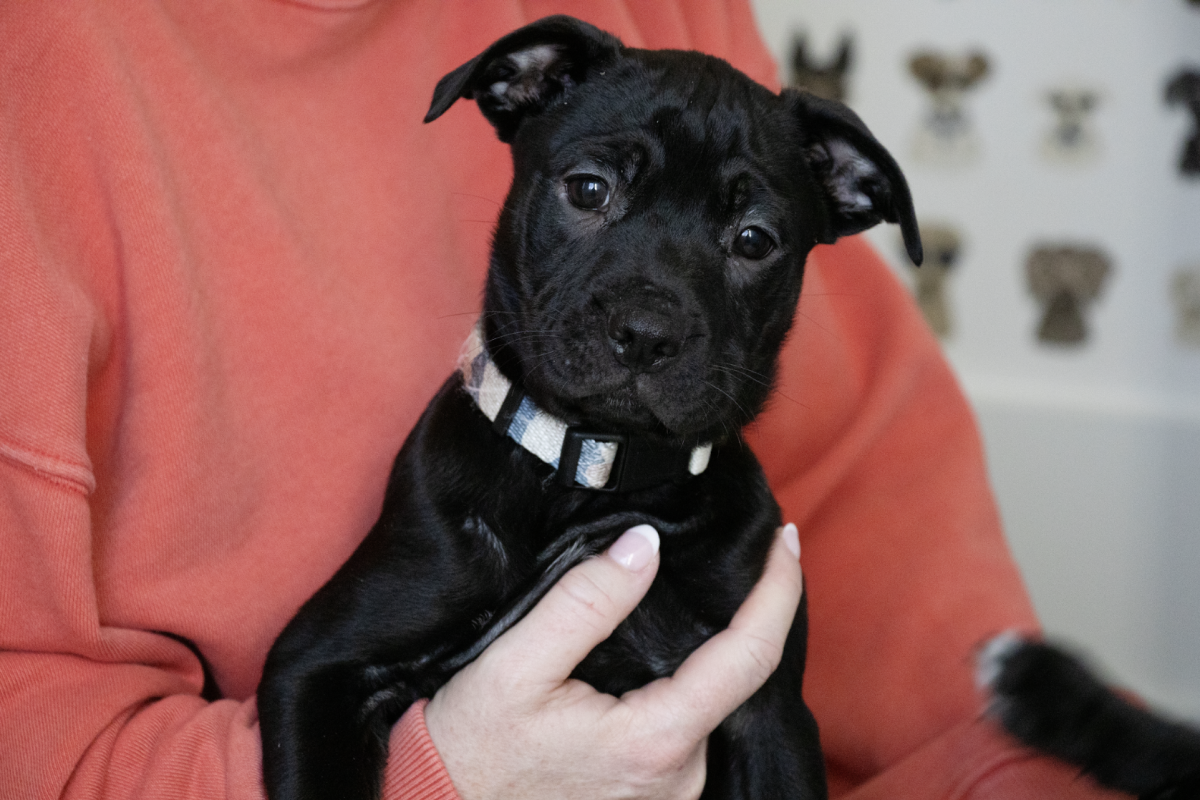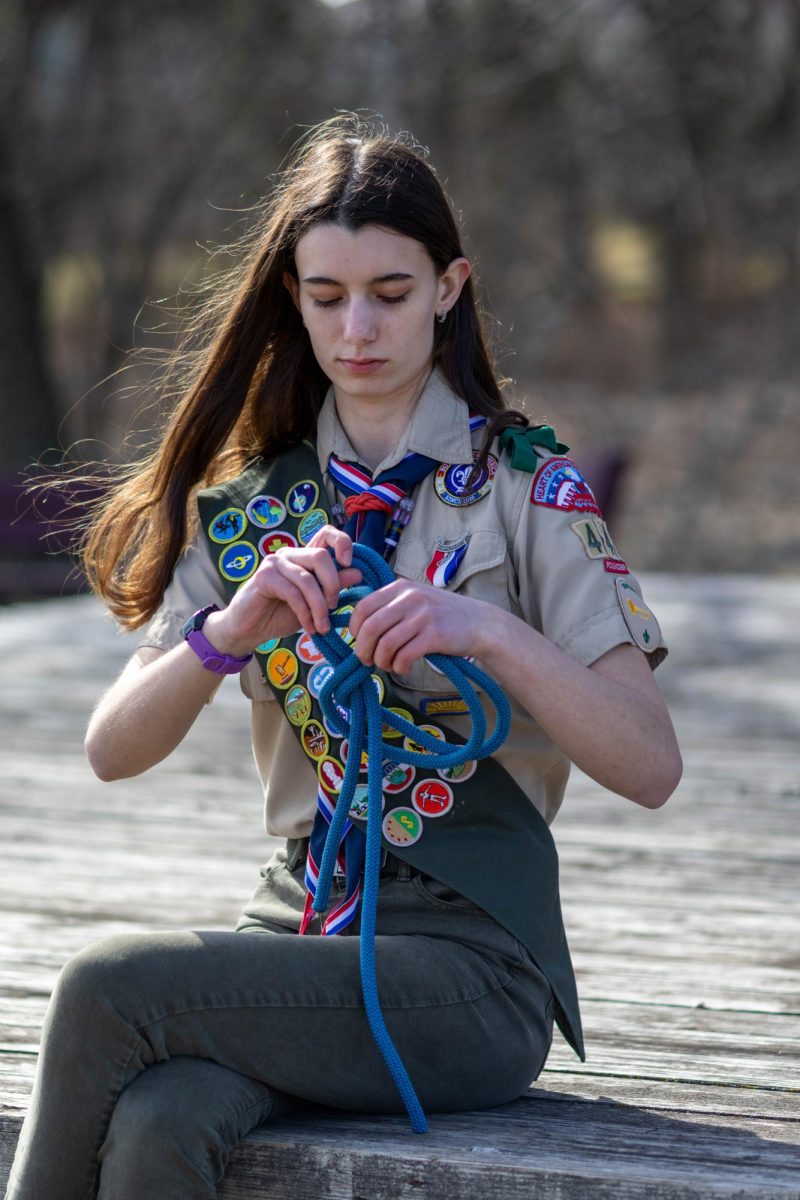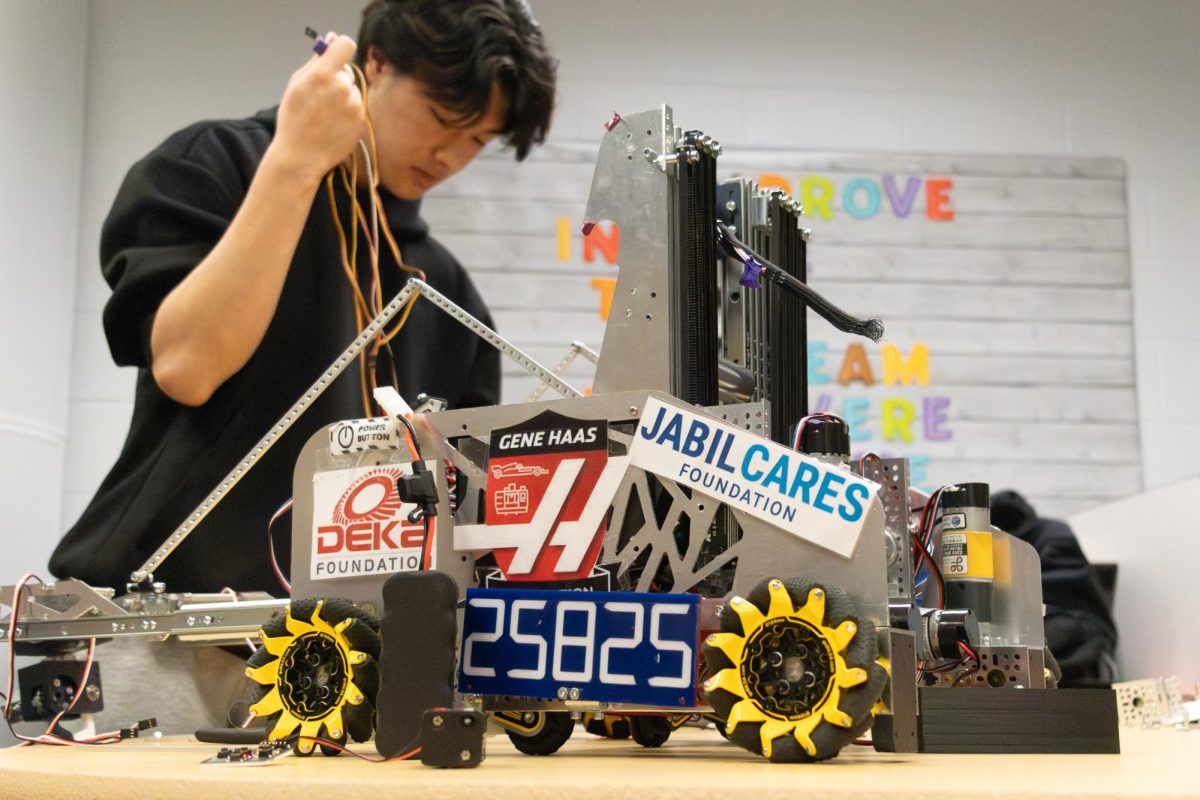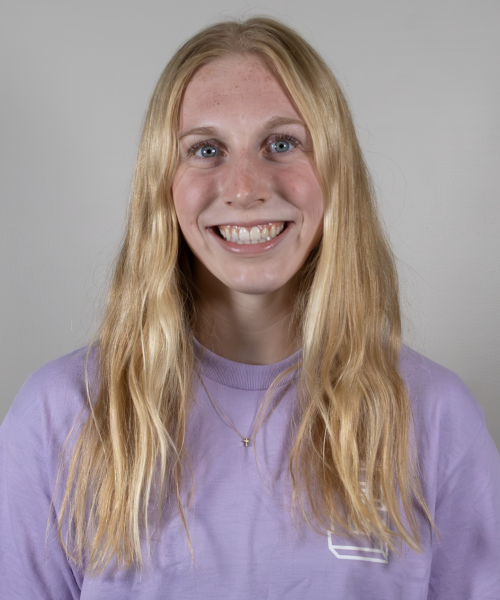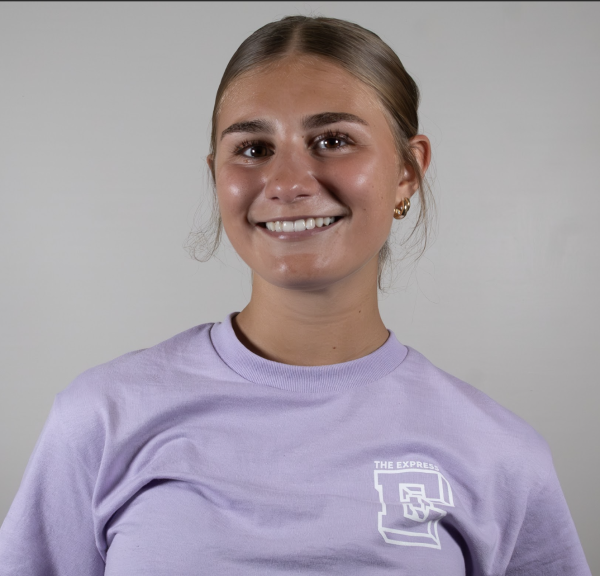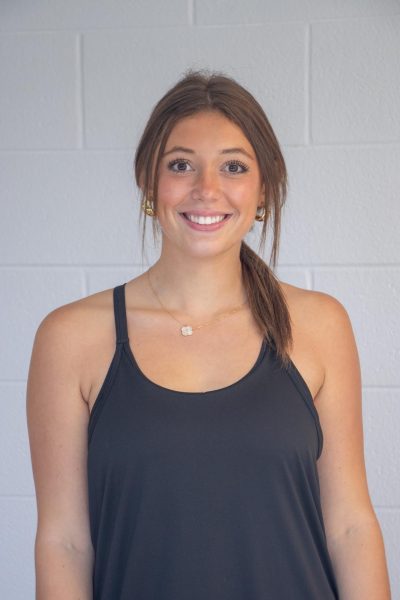Concern, worry and nausea are all Michael Moser said he could feel when his son, junior Max Moser, defensive back on the varsity football team, fractured the head of his ulna and dislocated his elbow. Michael described this experience as watching his fears in real life.
“It’s really hard to sit there when he pops up and his arm’s facing the wrong way,” Michael said.
Max was injured early in the season’s first playoff game against Shawnee Mission North. Prior to the injury, Michael said the atmosphere was full of excitement and anticipation as it was also Halloween.
“It looked like the guys came out of the tunnel really amped up to play football,” Michael said. “When the game started, they seemed to be playing with a lot of adrenaline and speed.”
Max said missing the playoffs was disappointing because it’s the best part of his season.
“The first night (after the injury) I was so upset because I’m out for the year,” Max said. “Regular season is fun, but playoffs just feel different.”
Max said he was initially in shock and frustrated.
“We work so hard to be able to go out there and play to the best of our ability and to not be able to play is frustrating,” Max said. “I wasn’t even that mad about my injury, I’m more mad at the fact that I can’t play.”
After getting home at 3:30 a.m. from a long night at the ER consisting of X-rays, pain meds and waiting, Max said he received lots of encouraging texts from his teammates.
“It’s nice to see that they care about me,” Max said. “Multiple people came and visited me, and that helped me get through it.”
Max’s girlfriend and member of The Pack Dance Team, junior Devon Hotze, said she was scared while watching Max’s injury from the sideline.
“When you care about someone a lot it sucks to see them get hurt, especially doing something they love so much,” Hotze said. “I got emotional because I didn’t know what happened and I was worried for him.”
Throughout the rest of the game and the following day at school, Hotze said she struggled to focus.
“When halftime rolled around, I forgot a part of the dance because my mind was somewhere else,” Hotze said.
During Max’s recovery, she said she plans on being a support system for him.
“If he needs someone to talk to, I’m trying to be there for him,” Hotze said.
Physical Therapist Ben Peterson, who does not treat Max, said encouragement is a very important aspect of his job because of the mental toll injuries can take on athletes.
“When you’re out there performing at a very high level and then all of a sudden you can’t do it, doubt can creep in and you can lose hope,” Peterson said. “A big part of this is coaching and encouragement that everything’s going to be alright.”
Peterson said the most common injury he treats is sprained ankles but this year he’s treated an unusual amount of fractures.
Similarly, Michael said Max’s orthopedic surgeon said there has been an increase in injuries this year.
“The first thing he said to me is, ‘I don’t know what’s going on. This year, I’ve seen more injuries like Max’s than I have in my whole career,’” Michael said.
Similarly, BVNW Athletic Trainer Christy Grimes said she noticed an increase in severe, season-ending injuries this year. Grimes said she normally treats one fracture a season for a sport, but this year it’s been more.
“This fall season, I probably had more injuries than I’ve had in years. I had about a fracture a week, and that was just in football,” Grimes said.
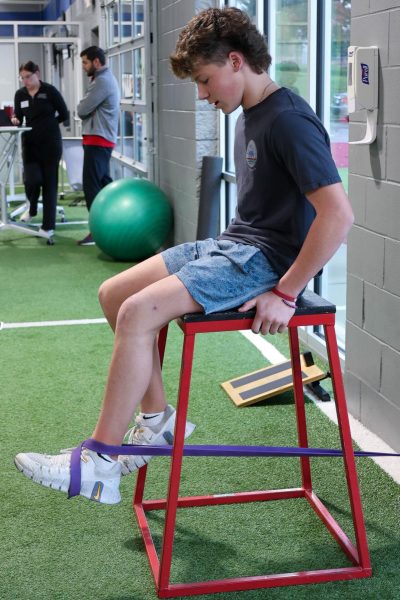
Freshman Drew Aadland has experienced two major injuries in the past two years. After tearing his meniscus, which cut his eighth-grade football season short, Aadland said he was excited to get back to playing football. During his first game after being out for five months, he tore his ACL on a play nearly identical to what caused his previous meniscus injury. Aadland said it was against the same team, tackling the same kid on the same type of play.
“It hurt pretty bad, but I was more frustrated [with] the fact that I knew this was happening again,” Aadland said. “I felt the same pain, felt everything the same, so I just had the same feeling.”
Aadland said this season is now very different from what he imagined.
“Sitting there watching, helping out [and] throwing some balls really is all I can do,” Aadland said. “I had a schedule planned out for the beginning of the year and now it’s just nothing.”
Similarly, junior Ava Jennings, The Pack Dance Team co-captain, said this season has been very different from what she expected due to a recurring injury involving her flexor hallucis longus tendon in her ankle. Jennings said she had to miss dancing at the first two football games.
“I had to sit out and watch, which [was] definitely hard because when you really love a sport, not being able to do it can affect your mental health,” Jennings said. “Having your activity taken away just leaves you bored.”
Jennings said her injury began freshman year due to overuse. She was participating in track while also dancing. Due to a lack of time, she said she didn’t get the strain addressed.
After the initial strain, Jennings began preparing with her studio for a national competition. She said she had really long days and felt excruciating pain in her ankle.
“I was active for 30-plus hours a week,” Jennings said. “It wore down the tendon, and eventually it started tearing.”
After nationals, Jennings said she stopped putting off professional help and found her injury was more serious than she initially thought. She said she hoped physical therapy would help, but she ended up needing surgery.
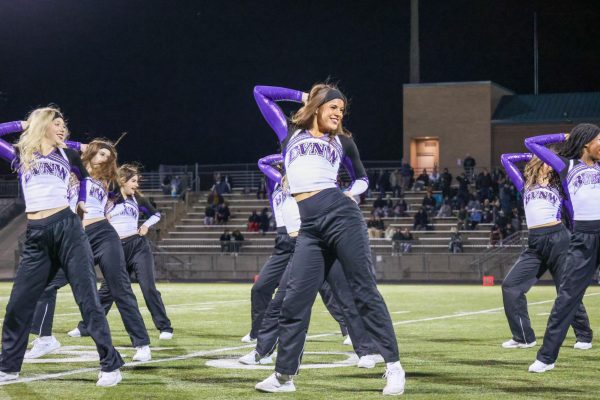
“I thought it was just one of those things that would go away, but I did physical therapy for about a year and it didn’t really get fixed,” Jennings said. “I finally went to an orthopedic doctor and they said the option was either to keep dancing on it or get surgery to fix it.”
Jennings said she decided to get surgery to prevent further injury in the future which could inhibit her from dancing in college.
“It was really important for me to get it done now and get it done as [quickly] as possible so I could continue to progress,” Jennings said.
Jennings is still recovering from the surgery and goes to physical therapy three to four times a week to work on strength and mobility.
Aadland said the recovery for his ACL is expected to take eight to 10 months, also causing him to miss his freshman-year baseball season.
“I was really frustrated with the fact that I wouldn’t be able to play baseball. I really wanted to show a good impression and everything,” Aadland said.
Aadland’s parents Todd and Mandie Aadland said they saw him go through frustration and anger while coping with reinjuring his knee after all the time, energy and effort he had already put into recovering after his first surgery.
“It hurts as a mom and a dad on the sidelines,” Mandie said. “The first injury, there’s a lot of unknown, then when he re-injured it the second time, it was immediately known that we were looking at another surgery in the near-term future.”
Along with missing the rest of the football season, Max said he will miss the beginning of the basketball season. He is expected to have a minimum of a six- to eight-week recovery process.
Michael said his son has dealt with the recovery process well.
“I see him mentoring at the football games to the players that are stepping up to take the place of some of the injured players,” Michael said. “I see him very active on the sidelines and being the team’s support and biggest cheerleader.”
Throughout his recovery, Max said he plans to stay positive and help his teammates.
“I’m trying to hype up my teammates whenever they make a good play and trying not to get too down about it, because it kind of sucks, but I’m just trying to stay positive,” Max said.
Jennings also said it’s important to stay optimistic while recovering from an injury.
“Focus on recovery. Don’t look at the bad side of things,” Jennings said. “Look at the fact that as soon as you’re able to get back, you’re going to be so much better and progress so much more than you had because you’re not in pain anymore.”




